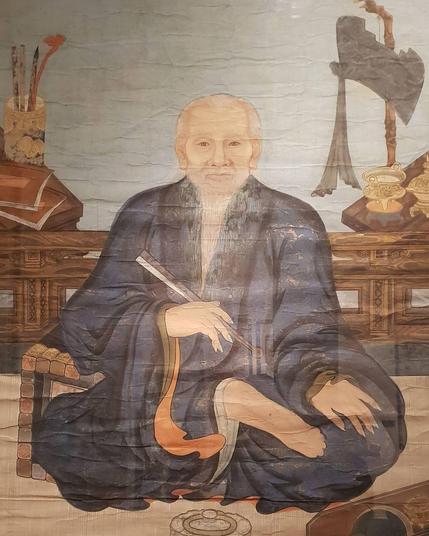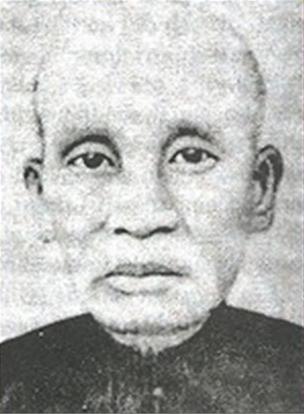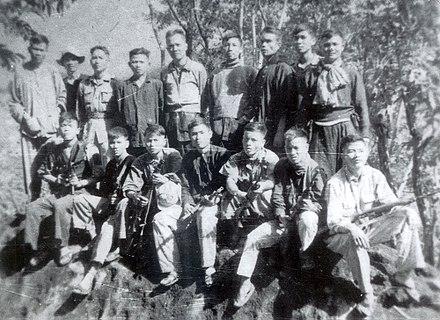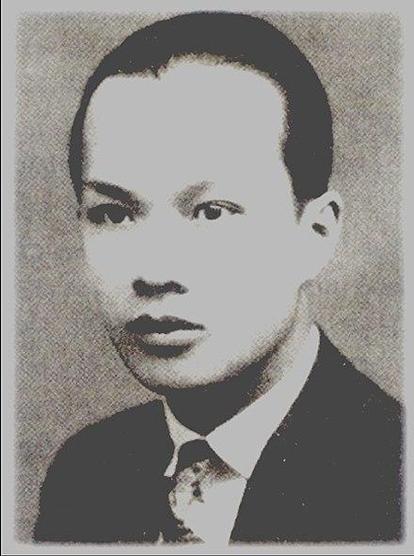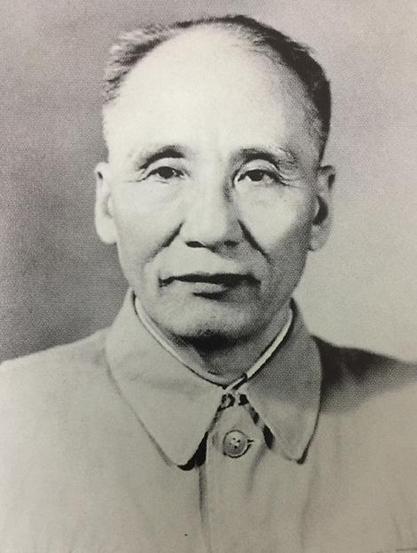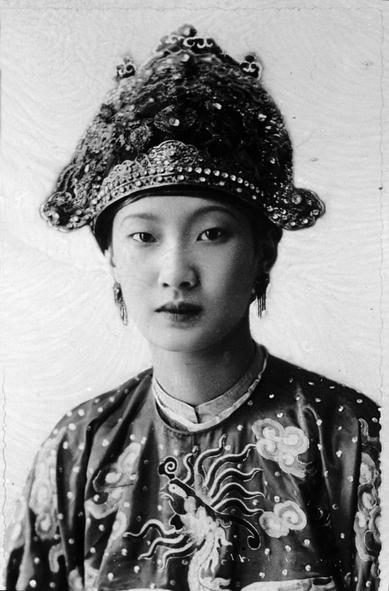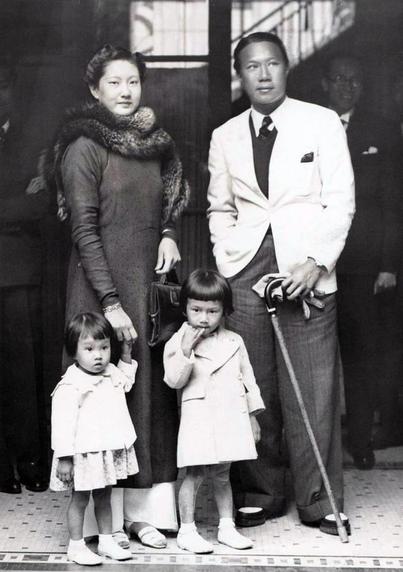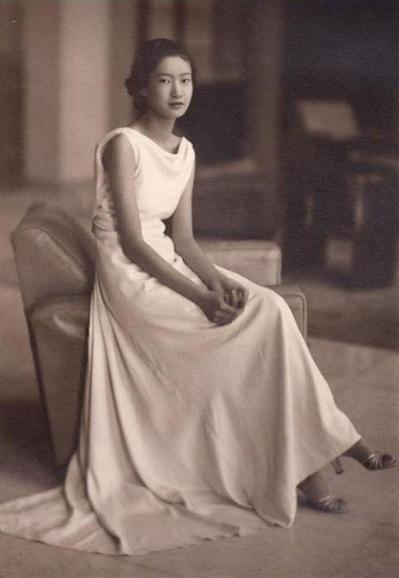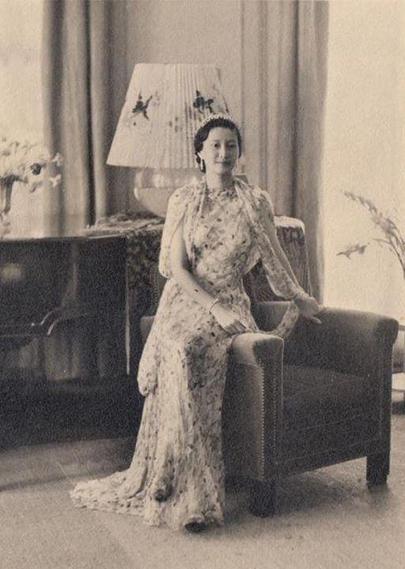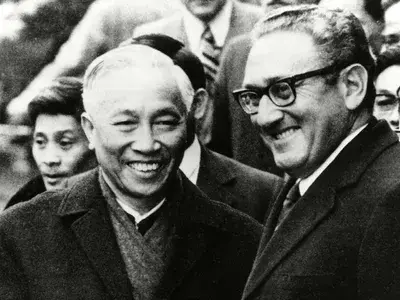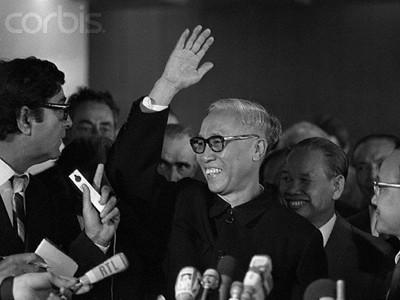Starting this #GraphicNovel - Sacco is quite brilliant in the writing field of #comics #journalism.
Not all #nonfiction books are bland & boring. His books are really interesting & blend factual text with comic #illustrations.
Recent searches
Search options
#learnhistory
"Chinese and Indigenous communities have shared histories. We faced hardships together while mining for gold in the British Columbia gold rush and experiencing the rugged Canadian weather and terrain.
There are many graves on First Nations territories when Chinese people died from the flu and from the building of the railway, crushed by landslides, collapsing tunnels and premature blastings (Mittelstedt, 2014). The First Nations communities took in the Chinese railroad workers and care for their grave sites to this day (Mittelstedt, 2014). We enjoyed economic success and partnerships that were respectful and mutually beneficial (Ma, 2012). Chinese people leased lands (on First Nations) to farm and then hired Indigenous people to help farm the land (Mathur et al., 2011, p. 74). The Chinese built elaborate gold-mining operations among First Nations communities and perhaps most importantly our communities intermingled and there were many marriages between Chinese men and Indigenous women. In 1891, 98% of Chinese people in Canada lived in British Columbia (Barman, 2013, p. 1), which explains why there are such intimate ties between Chinese people and our First Nations communities in British Columbia. Unsurprisingly, one in six Chinese men created a family with a local Indigenous woman (Barman, 2013, p. 1)."
https://fccrwc.com/chinese-and-indigenous-history-relationships-canada/
Step into the artistic world of the Middle Ages—sign up for our medieval art course! 
Explore the art of battle in the Middle Ages—join our medieval warfare course now! 
Expand your knowledge of the Middle Ages—join our community of learners with our online courses! https://medievalstudies.thinkific.com/ #MedievalStudies #LearnHistory
Discover the rich tapestry of faiths in medieval Spain—enroll in our Religions of Medieval Spain course today! https://medievalstudies.thinkific.com/courses/religions-spain #MedievalStudies #MedievalSpain #MedievalCulture #HistoryBuff #LearnHistory
Gain a deeper understanding of the New Testament by exploring its social and historical context—join our course now! 
Thank you, Fedi.Video! @FediVideo
I love the videos!
Here's a good written article:
https://insight.ieeeusa.org/articles/your-engineering-heritage-bulletin-board-systems/
#LearnHistory #ComputerScience #TelnetBBS #Modems #Communication https://social.growyourown.services/@FediVideo/113907953510178561
"Chen Yaozuo was a #Teochew prime minister & grand tutor of the crown prince of the #SongDynasty (960–1279) in the 11th century. Coming from a family of officials, he was a rising star at the start of his career, until he bravely, or some might say foolishly, answered a call of Emperor Zhenzong for open criticisms by submitting a memorial that spelt out the ills of the times, including matters that no one else dared to speak about. As a result, Chen Yaozuo was banished & demoted to become an assistant prefect in the Teochew prefecture. This happened in 998, almost 180 years after Han Yu of the Tang dynasty suffered a similar fate."
"....Chen Yaozuo was more of a problem-solver than Han Yu, and he knew this. At the same time, he sensed the Teochew people’s deep admiration for his fellow Confucian. Cleverly capitalising on this, Chen Yaozuo erected a shrine in honour of Han Yu and he used it to commence his own programme to promote education among what was still a backward population. In pursuit of this goal, the Sichuan native also set up a Confucian temple and places of learning, while identifying and encouraging able families to send their children to schools.
Chen Yaozuo left Teochew after three years of devoted service to its people. He subsequently revealed in an inscription presented to a study room in Zhangpu (a county in Fujian adjacent to Teochew prefecture) that his time in Teo-yor was passed without major worries, despite it being enveloped in miasma."
"Chen Yaozuo’s heart remained with the place even many years after his departure. His poem below, “A note to Registrar Li Zi in Chaoyang” (送潮陽李孜主簿), illustrates this:
潮陽山水東南奇
The mountains and waters of Chaoyang are a wonder of the Southeast
魚鹽城郭民熙熙
Fishing boats, salt beds, and people going in and out of the city form a merry sight
當時為撰玄聖碑
Back then I had to write inscriptions for the sages
而今風俗鄒魯為。
Today its customs are like Zou and Lu [i.e. the home countries of Mencius and Confucius]
#Chinese #historians credit Han Yu for starting what we may call a #revolution through #literacy in Teochew. Yet the extent of Chen Yaozuo’s tireless contributions towards this cause can be seen by its fruits. Before his arrival, the Teochew prefecture produced only three men who attained the status of jinshi, the highest scholarly title awarded by the Chinese imperial court since the late 6th century. By the end of Song, the records show more than 170 jinshi from Teochew, of whom about a third came from Teo-yor.
Beyond scholarly titles, the creation of an educated class sparked a golden age in Teochew with accelerated advancements in agriculture and industry that ended its days as a backwater."
Ref: https://inf.news/en/history/08fbe530527e724eeeee5320bff4f3b9.html
Nguyễn Thị Bình is a granddaughter of the Nationalist leader Phan Chu Trinh. She grew up in a land that had been under French rule since 1858. The country’s resources were plundered, & the people exploited as cheap labour & reduced to grinding poverty. So determined were the French to maintain their colonial hold at any cost, they collaborated in power-sharing with Japanese #fascist #occupiers who brought horror & starvation from 1940-1945.
Despite this, led by the #VietMinh Front, people of Vietnam triumphed in the #AugustRevolution of 1945 & the Democratic Republic of Viet Nam (DRV) was declared on September 2nd. Democratic elections took place in January 1946 but French troops, with the open support of the US & Britain, attacked the new Viet Minh administration in the south of the country & the #WarOfResistance against #France began.
Binh studied French at Lycée Sisowath in Cambodia & worked as a teacher during the #French #colonisation of Vietnam. She joined #VietnamCommunistParty in 1948. Upon joining, she immediately began work as a #grassroots #AntiColonial organiser. From 1945-1951, she took part in intellectual protest movements against French #colonists. She was arrested & jailed between 1951-1953 in #Saigon by the French #colonial authority in Vietnam. She was repeatedly interrogated under torture & sentenced to death but was reprieved & released in very poor health in 1954.
Upon release from prison, Binh went north to work in #Hanoi for the National #WomensUnion. Her job took her to many localities where she witnessed first-hand the impact of #colonialism & the French War on ordinary people & especially women & children.
1954 was a year of victory for the Vietnamese army. The defeated French were forced to sign the #GenevaAccords recognising the independence, sovereignty & unity of Vietnam. The country was temporarily split in two at the 17th parallel, with the French moving to the south from which they would withdraw, while the Viet Minh went to the north. A general election for the government of a united country was to follow within 2 years.
But it never happened. The #USA came centre stage to ensure that the Accords were never implemented. Driven by strategic interests in the region, it made sure that Vietnam stayed divided – preventing an election that would have swept Ho Chi Minh to power with 80% support, while bankrolling & controlling the reactionary #regime of Diem-Nhu south of the 17th parallel. This regime violently suppressed all opposition, executing of thousands of Viet Minh supporters & condemning hundreds of thousands to concentration camps and prisons.
In response, the NLF (for liberation of South Vietnam & unification) was formed in 1960. Nguyen Thi Chau Sa was assigned to the Foreign Affairs Section of its Re-unification Committee & given the name Nguyen Thi Binh (Peace). From 1962 onwards, her high-profile diplomatic work, took her across the world. She represented the aspirations of the people of Vietnam in every country & forum she visited, while the world’s strongest #imperialist power made all-out war on her small country.
During the #VietnamWar, she became a member of the #Vietcong Central Committee and a vice-chairperson of the South Vietnamese #WomensLiberation Association. In 1969 she was appointed foreign minister of the Provisional #Revolutionary Government of the Republic of South Vietnam. A fluent French speaker, Bình played a major role in the #ParisPeaceAccords - an agreement that was supposed to end the war & restore peace in Vietnam.
She was expected to be replaced by a male Vietcong representative after preliminary talks, but became one of the group's most visible international public figures. During this time, she was famous for representing Vietnamese women with her elegant & gracious style, and was referred to by the media as "Madame Bình". She was also referred to as the "Viet Cong Queen" by Western media.
After the war, she was appointed Minister of Education of the Socialist Republic of Vietnam from 1982-1986; the first female minister ever in the history of Vietnam. Binh was a member of the Central Committee of Vietnam's Communist Party from 1987-1992. She was the Deputy Chair of the Party's Central Foreign Affairs Commission & Chair of the National Assembly's Foreign Affairs Committee. The National Assembly elected her twice to position of Vice President of the Socialist Republic of Vietnam for the terms 1992–1997 & 1997–2002.
Bình has authored several op-eds, including a one on the state newspaper Nhân Dân in which she voiced concerns that the current personnel policy of the Communist Party of Vietnam have allowed some "incompetent and opportunistic" individuals to enter the party's apparatus. She also criticized the Party's focus on increasing membership at the expense of "quality."
From March 2009-2014, she served as a member of the support committee of #RussellTribunal on #Palestine.
Madame Bình became a source of inspiration & namesake for Madame Binh Graphics Collective, a #RadicalLeft all-women poster, printmaking, & street art collective based in NYC from 1970s-1980s.
Many Americans in the #AntiWar movement were proud to wear T-shirts printed with the portrait of "Madame Binh". By then, she had become a symbol for female soldiers of the legitimacy of Vietnam's efforts.
Madame Bình has been awarded many prestigious awards & honours, including the Order of Ho Chi Minh & Resistance Order (First Class). In 2021, President of Vietnam Nguyễn Xuân Phúc awarded her the 75-year Party Membership Commemorative Medal.
To commemorate the 75th anniversary of the Ministry of Foreign Affairs of Vietnam, the Government of Vietnam commissioned the official portraits for 12 former foreign ministers from 1945-2020. Nguyễn Thị Bình was included among them as the only South Vietnamese foreign minister & the only woman.
Ref: Nguyen Thi Binh". Northeastern Dictionary of Women's Biography (3rd ed.). Boston: Northeastern University Press. 1999. ISBN 978-1-55553-421-9
Ref: Triantafillou, Eric (3 May 2012). "Graphic Uprising". The Brooklyn Rail.
Ref: https://www.russelltribunalonpalestine.com/en/about-rtop/patrons.html
Ref: Hy V. Luong (2003), Postwar Vietnam: dynamics of a transforming society, Rowman & Littlefield, ISBN 0847698653
Nguyễn Thị Bình (born 26 May 1927), also known as Madame Bình & Mother of Vietnam, is a South #Vietnamese #revolutionary leader, #diplomat & #politician. She became internationally known for her role as the #VietCong (NLF)'s chief diplomat & leading its delegation to the Paris Peace Conference. She later served in the government of reunified Vietnam after the Fall of Saigon & became the country's Vice President in 1992. She is the first woman in Vietnamese history to be appointed a cabinet minister.
Nguyen Thi Binh was the only woman to sign the Paris Agreement on Ending the War & Restoring Peace in Vietnam on 27th January 1973. South Viet Nam was liberated on 30th April 1975 & the two parts of Vietnam were finally brought together in 1976 as the Socialist Republic of Vietnam.
In her memoirs, she said: “My own life, in concert with the life of our nation, has helped me understand that seizing political power and demanding independence were extremely difficult, particularly when opposing colonialists and imperialists. However, maintaining political power and building a nation…is much more difficult.”
At Hanoi Peace Conference in November 2022, she stated:
“Having suffered numerous sacrifices, pain and loss during decades of struggle against foreign aggression and for peace, independence and freedom, the people of Vietnam deeply appreciate the value of peace,” she told those gathered. Warning that the danger of wars, including a nuclear catastrophe, is greater than ever before, she stressed the vital importance of “rallying and uniting peace forces and movements” to halt aggression and build a world of peace and justice for all.
Ref: Nguyen Thi Binh. Northeastern Dictionary of Women's Biography (3rd ed.). Boston: Northeastern University Press. 1999. ISBN 978-1-55553-421-9.
Ref: Brigham, Robert K. (2011). "Nguyen Thi Binh". The Encyclopedia of the Vietnam War: A Political, Social, and Military History (2nd ed.). ISBN 978-1-85109-961-0
Ref: Hy V. Luong (2003), Postwar Vietnam: dynamics of a transforming society, Rowman & Littlefield, ISBN 0847698653
Nguyễn Quyền (1869–1941) was a #Vietnamese #scholar & #AntiColonial #revolutionary #activist who advocated independence from #French #colonial rule. He was a contemporary of Phan Bội Châu & Phan Chu Trinh & one of Tonkin Free School's founders.
"The more I read the more I become aware that the things we studied, our examination system, were wrong – indeed the real reasons for our having lost our country. From that point on I was determined to seize upon our country's literature and on modern learning to awaken our citizenry."
Quyen advocated the modernisation of Vietnam's #education system. Around 1903 or 1904, Quyen met Tang Bat Ho, who had returned from his travels abroad & talked extensively about the modernisation of Japan. In 1904 he met with Phan Bội Châu, but Quyen had little in common with Chau's ideology of using violence to achieve independence. Quyen went on the work with Lương Văn Can & Le Dai in setting up the Dong Kinh Thuc Nghia, which sought to strengthen the Vietnamese people & thereby the likelihood of independence through the training of a new, more modern generation of scholars.
In 1908, Quyen was arrested in a general crackdown by French authorities and sent to jail on Côn Lôn island. He died in the prison which was infamous for torturing political prisoners.
Ref: Marr, David G. (1970). Vietnamese Anticolonialism, 1885–1925. Berkeley: University of California. ISBN 0-520-01813-3.
Nguyen Huu Tho (July 10, 1910 - Dec. 24, 1996) was the chairman of the National Liberation Front #NLF - the South Vietnamese political organization formed in 1960 in opposition to the U.S. backed Saigon government.
He was born in the same Chinatown district (Cho Lon in Saigon) that my patriarch family lived & where we had our large incense factory.
The son of a rubber-plantation manager who was later killed during the First #Indochina War (1946–54), Nguyen Huu Tho studied law in Paris in the 1930s. Returning to #Saigon, he set up practice, remaining politically inactive until 1949, when he led student demonstrations against the French; he also organized protests in 1950 against the patrolling of the southern Vietnamese coast by U.S. warships. He was imprisoned & won popular acclaim for his prolonged hunger strike in protest of the war.
After the Geneva Agreements divided Vietnam into northern & southern zones in 1954, Tho cooperated with the southern regime of Ngo Dinh Diem until he was arrested for advocating nationwide elections on reunification. Except for a short period in 1958, Tho remained in prison from 1954-1961, when he escaped with aid of some of his anti-Diem followers. These men, who had recently formed the NLF, made Tho, a noncommunist, provisional & then full-time chairman of the NLF.
In 1965, he delivered an anti-imperialist speech, a booklet was later published in English, entitled SPEECH. His title was given as: President of the Presidium of the Consultative Council of the South Viet Nam National Front for Liberation on the 5th founding anniversary of the NFL.
Tho served as a figurehead leader. Real power in the NLF was held by its military arm, the #VietCong & by veteran communists who reported directly to the North Vietnamese leadership. Tho helped attract a wide spectrum of South Vietnamese supporters to the NLF. In June 1969, the NLF established a Provisional Revolutionary Government with Huynh Tan Phat as president & Nguyen Huu Tho as chairman of its advisory council. The PRG became the government of South Vietnam in April 1975, when Saigon government’s troops surrendered to the North Vietnamese & PRG forces. Tho was made a vice president of Vietnam in 1976, a post he held until 1980, when he became acting president. In 1981, Tho was made vice president of the Council of State & chairman of the Standing Committee of the National Assembly.
Thọ was awarded the Lenin Peace Prize (1983–84).
Between 1988 & 1994, he was chairman of the Vietnamese Fatherland Front (Mặt trận Tổ quốc Việt Nam), an umbrella organization for mass organizations in the country.
Ref: Jacques Dalloz : Dictionnaire de la Guerre d'Indochine, Paris, 2006, S. 171
Christopher E. Goscha : Historical Dictionary of the Indochina War (1945–1954), Kopenhagen, 2011, S. 323
Ref: Kiernan, Ben. How Pol Pot Came to Power. London: Verso, 1985. pp. 170-71.
Ref: Nghia M. Vo - Saigon: A History (2011)
Sentenced to death, Trỗi got a reprieve after the FALN, a #Venezuelan #MarxistLeninist #guerrilla group, kidnapped US Air Force Lieutenant Colonel Michael Smolen in revenge for Trỗi's sentence. The group threatened to kill Smolen if Trỗi was executed. Smolen was eventually released unharmed, and Trỗi was shot by firing squad shortly thereafter in Chí Hòa Prison.
In the West, Trỗi's arrest went largely unreported. Major news media did not report on Trỗi at all until the #FALN kidnapping episode. His anonymity persisted after his execution, despite the honors bestowed upon him in the #EasternBloc. Apart from advocacy by #revolutionaries like the Weather Underground & a brief mention in Abbie Hoffman's Steal This Book (1971) as a "Vietnamese hero", Trỗi is still rarely acknowledged in Western accounts of the #VietnamWar.
Many cities in Vietnam have named major streets after him. In #HồChíMinh City, the road upon which McNamara traveled ,& where Trỗi planned to assassinate him is named Nguyen Van Troi Boulevard & a memorial park, Bia tưởng niệm Anh Hung Liet Si Nguyễn Văn Trỗi is located near the former Cong Ly Bridge. In #ĐàNẵng, the Nguyễn Văn Trỗi Bridge spans the Hàn River. Other countries have commemorated Trỗi, particularly #Cuba. A 14,000-seat public stadium in #Guantánamo is named Nguyen Van Troi Stadium & his statue overlooks Nguyen Van Troi Park in #Havana; the city also has a school & hospital named for him.
Anti-war activists Jane Fonda & Tom Hayden named their son, an actor now known as Troy Garity, in honor of Trỗi.
The 1975 film Chronicle of a #LatinAmerican subversive (Spanish: Crónica de un subversivo latinoamericano) by director Mauricio Walerstein, narrates the kidnapping episode of Colonel Smolen by FALN guerrillas in response to Trỗi's death sentence.
(Ref: Doling, Tim (2019). Exploring Saigon-Cholon – Vanishing Heritage of Ho Cho Minh City. Thế Giới Publishers. ISBN 9786047761388.)
For 22,000 #Vietnamese & some #Cambodians, #CônSơn Island was literally the last stop on a journey that began with their arrest & incarceration on the mainland. Their crime? Resisting #ForeignInvaders du jour & fighting for their country’s independence & unification. In addition to execution, causes of death included disease & torture.
The French built the Côn Đảo prison complex in 1861 to hold #PoliticalPrisoners and handed it over to the South Vietnamese government in 1954. It was a political Alcatraz on steroids, with #inhumane living conditions, barbaric torture methods, no escape and, for many, no survival. The US & its client state collaborators honed this hell on Earth to #dystopian perfection.
Sáu was sent to 3 jails before being shipped to Côn Sơn Prison, because the French didn’t have the courage to carry out her death sentence on the mainland at a time when it was against #ColonialLaw to execute woman. She was the only female prisoner held by the French on Côn Sơn.
Like other Vietnamese who died for the cause of independence, Sáu, a national heroine who is celebrated in theater & song, was elevated to the status of ancestral spirit. Every Vietnamese city & town has a street named after her, as are many schools. She embodies the spirit of millions of Vietnamese throughout history, including soldiers of the First & Second Indochina War, who sacrificed everything, their youth, their health, their love, their personal happiness, & their lives, so that Vietnam could become a unified, sovereign nation.
“The lekima flower in full bloom, we are reminded of a heroine who died for future generations. The young lady so full of vitality fought against our enemies with firm spirit & even death could not force her to yield”. The song echoes in the mind of everybody who visits Hàng Dương cemetary in Côn Đảo district, Bà Rịa-Vũng Tàu province. Vo Thi Sau, the #heroine mentioned in the song, was #executed by the #French #colonialists at the foot of Chua mountain in the early morning of January 23, 1952. 60 years later, her immortal patriotism & sacrifice still shine in the heart of every Vietnamese person, particularly those who live on #ConDao island, once called “hell on the earth”. (Ref: VOVWorld)
The 20-hectare Hàng Dương cemetery holds the graves of more than 20,000 martyrs, including #revolutionary #martyr Lê Hồng Phong, patriot Nguyễn An Ninh & #hero Cao Văn Ngọc. Visitors are moved to see grave after grave, some named, some unnamed, stretching over the hill. Vo Thi Sau’s grave, set in gravel & soil shoveled by her fellow prisoners, lies in section B.
Sister Sau was already a legend when the ship carrying her docked at Con Dao island in 1952. At the execution, she refused to be blindfolded, wanting to admire the motherland’s landscape & sing until her last breath. Many families on Con Dao island have set up altars to worship sister Sau, whose legend has become eternal in Vietnamese hearts.
"Perhaps this is the biggest single difference between Viet Nam and Abu Ghraib. In Viet Nam, the U.S. primarily taught and paid the Saigon police and military to do their bidding. In Abu Ghraib and Iraq, the U.S. military is carrying out the torture themselves. There were, however, many Vietnamese who were tortured by Americans before being turned over to their Saigon allies and put into jail. Reports of suspected Viet Cong being thrown out of helicopters, peasant farm people tied to stakes in the hot sun, and young men led off to execution by U.S. soldiers are well-documented by U.S. soldiers and journalists.
The U.S. paid the salaries of the torturers, taught them new methods, and turned suspects over to the police. The U.S. authorities were all aware of the torture."
https://www.historiansagainstwar.org/resources/torture/luce.html
Queen of Vietnam’s last imperial monarchy: Nam Phuong Empress (1914-1963). Her ordained name translates to “Fragrance of the South,” a fitting title for a woman ahead of her time, whose virtues, charm & charisma still linger with us to this day.
Daughter of one of Vietnam’s wealthiest 20th century families, she was born Marie-Thérèse Nguyen Huu Thi Lan. A native of Tien Giang Province, the queen-to-be was a French national, having been sent to an exclusive Catholic boarding school in Neuilly-sur-Seine, at age 12.
1.75 meters tall with Eastern features, Nguyễn Hữu Thị Lan was a great beauty. Legend has it that she was crowned Miss Indochina three times.
In his memoir Con Rồng An Nam, or Dragon of An Nam, Emperor Bảo Đại expressed his enchantment for his wife, “Lan had the beauty of a southern girl, tender and captivating. She enchanted me.”
For this reason, he later gave her the title Nam Phương, which, according to the emperor, means Parfum du Sud, or Perfume of the South.
According to historians, the royal family of the Nguyễn Dynasty were vehemently against this marriage in the beginning. To allow a French-educated woman who practiced a western religion to become the queen of a Confucian-influenced nation was unprecedented.
Emperor Bảo Đại was more than willing to break with precedent.
Nguyễn Hữu Thị Lan’s family also responded to the emperor’s proposal with conditions that made things even harder to accept.
All of these requests were unprecedented in Vietnam’s monarchy.
First & foremost, Nguyễn Hữu Thị Lan should be crowned as queen consort, or empress, on her wedding day. Secondly, she should remain a Catholic & all of her children be baptized & made Catholic. Most importantly, the couple must obtain permission from the Pope in order to let the emperor practice his Buddhism & his wife practice Catholicism.
Despite his mother’s disapproval, the emperor managed to meet most of the conditions & marry the object of his enchantment. What’s more, he agreed to renounce polygamy & take her as his only lawful wife.
In his address to the royal family, the emperor made his point clear, “I’m marrying for myself, not for the royal court.”
The wedding took place in March 1934, without the approval of the Vatican.
At Thái Hòa Palace, Nguyễn Hữu Thị Lan was crowned as the empress of An Nam, and titled Empress Nam Phương. He also broke a long-standing tradition by allowing the empress to wear yellow, a color unique to the emperor only.
Recalling this unprecedented historical event, Emperor Bảo Đại wrote:
“Yes, I made my wife queen in this marriage, even though queenship is a title usually given to a king’s wife only after her death. She was wearing a royal robe, a pair of upturned toe cap shoes, and a puffed bonnet embroidered with gemstones. That was the first time in the history of An Nam that a lady walked into the palace amid the ceremonious reception of the royal court. All by herself, she walked into the grand hall and waited for me there, sitting on a low wooden stool.”
After the controversial marriage, the royal family refused to let the newlyweds reside in the Forbidden City. Instead, they stayed inside Kiến Trung Palace. The interiors of this place were later remodelled in French style to become more modern & comfortable for the two who were already accustomed to Western lifestyles.
After his abdication on August 25th 1945, Emperor Bảo Đại had an affair with Lady Bùi Mộng Điệp, a Buddhist from northern Vietnam. Even though an official wedding between these two never took place, Lady Bùi Mộng Điệp was recognized & favored by the royal family. She was known to be very respectful & resourceful in organizing Buddhist-themed public events in the palace.
The relationship between the empress and the emperor slowly fell apart.
Empress Nam Phương had five children with Vietnam’s last emperor, whom she brought with her to France in 1947. They were Crown Prince Nguyễn Phúc Bảo Long, Lady Phương Mai, Lady Phương Liên, Lady Phương Dung, and Prince Nguyễn Phúc Bảo Thắng.
The royal family resided in the castle Thorenc in Cannes, a property of the empress’ family. Sometimes, the emperor travelled to France to visit them.
The empress passed on at the age of 49, without any family members by her side. In the last years of her life, she expressed her wish to have her body buried in Dalat, near her parents’ tombs, but her children didn’t agree with that.
Her funeral was carried out in such a quiet and simple manner that made it hard for the spectators to believe that the person lying in the coffin was a queen.
10 January 1973, negotiations broke down when #Kissinger demanded the release of all #AmericanPOWs in North Vietnam once a peace agreement was signed, but offered no guarantees about #VietCong prisoners being held in South Vietnam.
Thọ stated: "I cannot accept your proposal. I completely reject it".
Thọ wanted the release of all prisoners once a peace agreement was signed, which led Kissinger to say this was an unreasonable demand. Thọ, who had been tortured as a young man by the French colonial police for advocating Vietnamese independence, shouted:
"You have never been a prisoner. You don't understand suffering. It's unfair".
Kissinger finally offered that the United States would use "maximum influence" to pressure the South Vietnamese government to release all Viet Cong prisoners within sixty days of a peace agreement being signed. On 23 January 1973, at 12:45 pm, Kissinger and Thọ signed the peace agreement.
In his book “Our Vietnam: The War 1954–1975,” U.S. journalist A.J. Langguth says that despite Kissinger’s protestations for Tho to be quiet, during one session of the talks he shouted at Kissinger for over an hour:
“For more than ten years, America has used violence to beat down the Vietnamese people-napalm, B-52s. But you don’t draw any lessons from your failures. You continue the same policy. Ngu xuan! Ngu xuan! Ngu xuan!”
The translator refused to tell Kissinger what Ngu xuan meant (massively stupid) for fear of causing offence.
Luu Van Loi, who was with Tho at the conference as a member of the negotiating team, wasn’t happy with #Kissinger either. “Kissinger was dodgy; he always brought up irrelevant matters at the start of meetings, and only mentioned the important stuff out for discussion at night. He must have thought that the old Le Duc Tho was sleepy and tired. But he knew nothing about Tho! The longer the negotiation went, the more alert Tho got.”
Kissinger seemed to agree with Luu Van Loi when he expressed his astonishment: “Sometimes he talked for hours straight. I said, ‘I’ve heard this countless times,’ but Tho responded ‘You’ve heard it countless times but you haven’t remembered it, let me repeat…’”
Thọ told Kissinger at their first meeting that "Vietnamization" was doomed, dismissively saying in French: "Previously, with over one million U.S and Saigon troops, you have failed. Now how can you win if you let the South Vietnamese Army fight alone and if you only give them military support?"
In April 1970, Thọ broke off his meetings with Kissinger, saying that there was nothing to discuss. An attempt by Kissinger to talk to Thọ again in May 1970 was rejected with a note reading "The U.S. words of peace are just empty ones"
In July 1971, Kissinger taunted Thọ with news that President #Nixon would be visiting China soon to meet #MaoZedong, telling him that the days when the North Vietnamese could count of the supply of Chinese arms were coming to close. Thọ showed no emotion: "That is your affair. Our fighting is our preoccupation, and that will decide the outcome for our country. What you have told us will have no influence on our fighting".
2 May 1972, Thọ had his 13th meeting with Kissinger in Paris. The meeting was hostile; the North Vietnamese had just taken Quang Tri City in South Vietnam, which led Nixon to tell Kissinger "No nonsense. No niceness. No accommodations". During the meeting, Thọ mentioned that Senator William Fulbright was criticizing the Nixon administration, leading Kissinger to say: "Our domestic discussions are no concern of yours". Thọ snapped back: "I'm giving an example to prove that Americans share our views". When Kissinger asked Thọ why North Vietnam had not responded on a proposal he sent via the Soviet Union, Thọ replied: "We have on many occasions said that if you have any question, you should talk to directly to us, and we shall talk directly to you. We don't speak through a third person".
August 1972, Kissinger promised Thọ that he would pressure Nguyễn Văn Thiệu to resign if Thọ agreed to a peace deal before US presidential elections. Thọ told Kissinger that the timetable for Thiệu's departure was no longer an immediate concern & he wanted some $8 billion in reparations for the war damage. Kissinger told Thọ that he wanted to tell the world about their secret meetings since 1970 to give the impression that Nixon was making progress on peace in Vietnam, a suggestion Thọ rejected, saying it's not his job to assist Nixon's reelection campaign.
20 November 1972, Kissinger met Thọ again in Paris. Kissinger no longer aimed at secrecy & was followed by paparazzi as he went to a house owned by the French Communist Party where Thọ was waiting for him. Kissinger announced the Americans wanted major changes to the peace agreement made in October to accommodate Thiệu, which led Thọ to accuse him of negotiating in bad faith.
Thọ: "We have been deceived by the French, the Japanese and the Americans. But the deception has never been so flagrant as of now".
Putting more pressure, Nixon told Kissinger to break off talks if Thọ wouldn't agree to changes he wanted. Kissinger told Nixon: "While we have a moral case for bombing North Vietnam when it does not accept our terms, it seems to be really stretching the point to bomb North Vietnam when it has accepted our terms and when South Vietnam has not". December 1972, talks had broken & Nixon decided to resume bombing North Vietnam.
After the Christmas bombings of 1972, Thọ was in particularly savage mood towards Kissinger.
8 January 1973 in a house in the French town of Gif-sur-Yvette, Kissinger arrived to find nobody at the door to greet him. When Kissinger entered the conference room, nobody spoke to him. Sensing the hostile mood, Kissinger speaking in French said: "It was not my fault about the bombing". Before Kissinger could say anymore, Thọ exploded in rage, saying in French:
"Under the pretext of interrupted negotiations, you resumed the bombing of North Vietnam, just at the moment when I reached home. You have 'greeted' my arrival in a very courteous manner! You action, I can say, is flagrant and gross! You and no one else strained the honor of the United States"
"You've spent billions of dollars and many tons of bombs when we had a text ready to sign". Kissinger replied: "I have heard many adjectives in your comments. I propose that you should not use them". Thọ answered: "I have used those adjectives with a great deal of restraint already. The world opinion, the U.S. press and U.S. political personalities have used harsher words".
#French #colonial authorities imprisoned him from 1930-1936 & again from 1939-1944. The French imprisoned him a "tiger cage" cells in the prison on Poulo Condore (Côn Sơn Island) in the South China Sea. Poulo Condore was the harshest prison in all of French #Indochina. During his time in the "tiger cage", Thọ suffered from hunger, heat, torture & humiliation. He was a teenager & these prison experiences hardened him.
After his second release he returned to Hanoi in 1945 to help lead the #VietMinh, the #VietnameseIndependence organization, as well as a revived communist party called the #VietnamWorkersParty. He was senior Viet Minh official in southern Vietnam until the #GenevaAccords of 1954. From 1955 he was a member of the Politburo of the Vietnam Workers’ Party, or the Communist Party of Vietnam(renamed in 1976). During the Vietnam War (1955–75) Tho oversaw the #VietCong insurgency that began against the South Vietnamese government in the late 1950s. He carried out most of his duties during the war while in hiding in South Vietnam.
“The Nobel Committee made a big mistake,” he said in an interview with UPI a decade later. “This is a prize for peace. The thing here is, who is the one that has created peace? The ones who fought against the U.S. and established peace for the country are us, not the U.S. However, the Nobel Committee has put the invader and the invaded as equal – that is something I cannot accept, and that is the reason why I declined the prize.” When asked if he’d accept the prize now that the country is free, he replied, “Yes, but only if the prize is awarded to me only.”
https://tienphong.vn/uy-ban-giai-nobel-da-sai-lam-dang-tiec-post611381.tpo
Lê Đức Thọ's "insolence" towards Western politics helped to gain his country control over Saigon, Vientiane & ousted a pro-Western government in Phnom Penh. Within Vietnam, Lê Đức Thọ is remembered as a revolutionary leader who played a pivotal role in the country’s struggle for independence & reunification. He is honored as a key figure in Vietnam’s history.
Despite his involvement in peace negotiations, Lê Đức Thọ remains a controversial figure, among those who view him as a symbol of the repressive communist regime in Vietnam. The communist government’s human rights abuses & suppression of dissent have led to criticism of his role in the post-war government.






